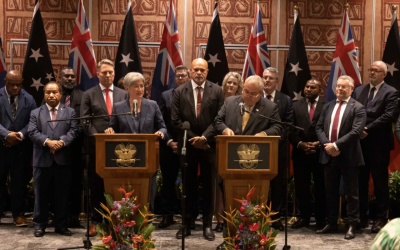The World Bank has issued a stark warning to Papua New Guinea, underlining the urgent need to tackle what it describes as a “human capital crisis” plaguing the nation. In its annual economic update released on recently, the World Bank underscored the critical importance of investing in education to bolster economic growth and ensure long-term security in the largest Pacific Island nation.
Despite modest economic growth of 2.7 per cent last year, Papua New Guinea faces significant challenges, including delays in reopening the Porgera gold mine and reduced liquefied natural gas production, contributing to sluggish economic performance. To diversify away from resource dependency, the World Bank stresses the imperative of prioritizing human development.
The report highlights alarming statistics regarding child welfare and education in Papua New Guinea. Nearly half of children suffer from stunted growth, impeding their cognitive development, with a staggering 70 per cent of Grade 5 students failing to read at grade level due to late school enrolment. Lack of basic facilities like textbooks and toilets in schools exacerbates the problem, compounded by widespread hunger among children hindering their ability to learn.
Poorly trained teachers and high absenteeism further hinder educational progress, necessitating structured lesson plans to improve classroom learning outcomes. The challenges outlined in the report are pervasive, affecting both urban communities and remote rural villages across Papua New Guinea.
Lars Sondergaard, a World Bank education specialist, underscored the urgency of addressing these foundational issues, saying sustainable economic growth hinges on an educated and skilled workforce. With the youth population projected to boom by 2050, Papua New Guinea must act swiftly to equip its citizens with the necessary skills to drive development.
Moreover, the report highlights the societal risks associated with a large youth population facing limited opportunities for education and employment, citing potential implications for future stability and development. Strengthening education is not only crucial for economic prosperity but also for fostering peace and trust within society, according to Joy Wong, another World Bank education specialist.
As Papua New Guinea navigates its development trajectory, increased investment in education emerges as a fundamental pillar for building a prosperous and resilient nation. The World Bank’s recommendations highlight the imperative for immediate action to address the pressing challenges facing Papua New Guinea’s education system.



